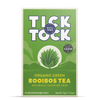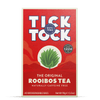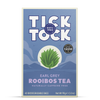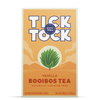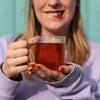
We’ve teamed up with nutritional consultant Fiona Hunter to share her expert advice on maintaining a healthy diet and the importance of keeping hydrated:
Water accounts for around 60% of an adult’s body. Every single cell needs it to function, so making sure you are properly hydrated is an important aspect of staying healthy.
Even mild dehydration can lead to headaches and make you feel sluggish and lacking in energy, and in the long term not drinking enough can increase the risk of kidney stones and urinary tract infections.
The amount of fluid you need depends on many things, including your age, weight, the weather and how much exercise you do, but as a general guide The European Food Safety Authority recommend that men need around 2.5 litres of water a day and women around 2 litres a day.
Between 20-30% of this will actually come from foods like fruit and vegetables so it works out at around 1.6 litres or 8 x 200ml glasses for women and 2 litres or 10 x 200mls glasses for men.
Many people believe this recommendation refers to the amount of water we need to drink, however that’s not the case as other drinks will also count. There are plenty of choices when it comes to hydration but some are clearly healthier than others. Check out:
- Milk - provides a range of vitamins and minerals, including calcium which helps to keep bones healthy. Milk also gets a big thumbs up from dentists because it is better for teeth than soft drinks.
- Fruit juice and smoothies - one small glass of 100% fruit juice will count as one of your 5-a-day servings and a smoothie which contains fruit puree and fruit juice will count as 2 servings. Nutritionists recommend that drinks such as these should be consumed in moderation because of their sugar content.
- Fizzy drinks and squash - one can of fizzy pop can contain between 6-10 tsp of sugar, so because of their high sugar levels, nutritionists recommend that they should be an occasional treat rather than a regular part of the diet.
- Tea and coffee - while recent studies indicate that both tea and coffee can help to hydrate the body, they also contain caffeine which some people prefer to avoid.
Rooibos tea - also known as redbush tea, rooibos is a light and refreshing alternative to traditional green and black tea. Rooibos or Redbush tea is naturally caffeine free, rich in antioxidants and low in tannins so it won’t interfere with the absorption of iron which is a mineral that many women don’t get enough of. This makes it a popular choice among anyone trying to limit caffeine and stay healthy. Other caffeine free options include fruit and herbal teas.


Esteemed nutritional consultant Fiona Hunter (BSc (Hons) Nutrition, Dip Dietetics), is a food writer, broadcaster and is known for her honest and practical approach to nutrition.
